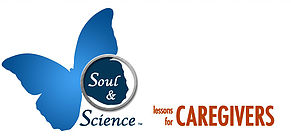VIDEOS

Arne Dietrich Professor of Psychology www.harford.de/arne Arne Dietrich gave early promise of being nothing special whatsoever. Being annoyingly hyperactive and exceptionally stubborn as a child, some people predicted a career as a clown while others foresaw an early death. To everyone’s intense disbelief, he finished school and college only to go off globetrotting for several years, a lifestyle interrupted from time to time by the occasional date and a few phone calls to his mother. During this time, he also embarked on extended do-it-yourself introspective voyages into the hinterland of the mind that made him realize how treacherous soul searching is without detailed knowledge of the 3-pound pile of electrified biochemistry inside his cranium. Diagnosed with incurable curiosity, Arne then did hard time in an (educational) institution, where he, over a hectic period of a few years, learned the nuts and bolts of neuroscience, including the ‘how to’ of publishing entirely useless stuff about the brain. He is now a tour guide into the bizarre world of brain cells and human behavior at, of all places, the American University of Beirut in Lebanon. He is still surfing the stream of consciousness every chance he gets. Arne prefers to work on, and spend his time in, various altered states of consciousness. His favorite one is daydreaming but he also enjoys the exercise-induced state of transient hypofrontality that comes from swimming, biking, running or hiking for miles on end.
Through intimate personal reflections and patient stories, Fahad Saeed, MD shares his personal journey with the fear of death. In the end, he is surprised to find a simple answer to embracing his own mortality. Dr. Fahad Saeed is a nephrologist and a palliative care specialist who studies dialysis decision-making and end-of-life experiences. His personal life experience as an immigrant and care of patients with serious illnesses have taught him valuable lesson about matters of life and death – and he seeks to share them with everyone. https://www.urmc.rochester.edu/ people/29443826-fahad-saeed This talk was given at a TEDx event using the TED conference format but independently organized by a local community. Learn more at https://www.ted.com/tedx
After an extensive career working as a nurse, Marie-Jo has developed a passion for palliative care. By having an opportunity to work closer with the dying, Marie-Jo has been forced to look inwards and truly question if she knows herself. She discusses three lessons that have given her a unique perspective on why your words matter and how sometimes there is no tomorrow. Understanding why these aspects are important come from a willingness to ask the question “how am I living?” Born in Kingston, Jamaica, Marie-Jo moved to Kingston, Ontario when she was 6. She graduated from Queen’s University in 1990 with a Bachelor of Science degree in Nursing, and a Bachelor of Arts degree in Psychology. She attained her Masters of Health Science degree while living in New Zealand. Marie-Jo has worked across the spectrum of nursing from Community to Acute Care, from bedside to education based positions. While she has enjoyed almost every opportunity she has experienced, she considers Palliative Care her ‘home’. She believes it is a privilege to care for the dying, but more importantly, she has become a better person because of it. This talk was given at a TEDx event using the TED conference format but independently organized by a local community. Learn more at http://ted.com/tedx
As I, Amy Mindell, upload the 1st part of this 3 PART INTERVIEW today in 2010, I realize the recorded conversation occurred almost 20 years ago. Still, the essence, innovations, and hope shown in this interview are as important and new today as before. We need to re-think and learn more about how to connect deeply with people in vegetative and comatose states. For more on process oriented coma work, see www.aamindell.net. Thanks to Jeffrey Mishlove for his help with this interview.
